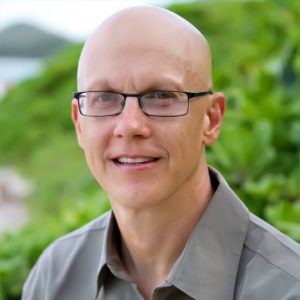Bryan Cook

"I found working with individuals with disabilities enriching, challenging, and interesting and I've been involved in special education ever since."
Hometown
Costa Mesa, CA
Department
Special Education
Are there topics you think your students are surprised to be learning about in your classroom?
I hope so. I try hard to be organized and efficient when I teach. I almost always have an outline of topics and activities to be covered in a class that I preview at the beginning of the class. I do this partly because it is good teaching and helps students learn, but also to help keep myself on task. I find education, and special education in particular, to be a fascinating window on society. And there are connections to different aspects of education and the broader world in every topic that we examine. If I’m not careful I can go off on a lot of tangents. For me, and hopefully for my student too, one of real pleasures of learning about teaching and learning is making these connections. Whether it is through learning about the history of terms and concepts like idiot, imbecile, and moron; the connection between disability, eugenics, immigration policies, forced sterilization in the US, and Nazi Germany’s euthanasia policies; or linking standard error of measurement and confidence intervals to everyday measurement instruments (e.g., scales), I try to make things both interesting and relevant by exploring some different topics and ideas. But I try to stay on task, at least most of the time.
As an educator, when do you know you’ve been successful?
Successful teaching can mean a lot of different things. At the micro-level, within a lesson, success can be indicated by students nodding their heads at the right time, being highly engaged in an activity, asking a question that I hadn’t thought about before, or just getting quiz questions correct. But more broadly, I know I’ve been successful as a teacher when my students understand and appreciate content such that they apply it in their own lives and teaching. Some of the most rewarding moments for me as a university instructor are when students, sometimes current ones but often former students, tell me they’ve applied what they learned in class in ways that have improved the lives and outcomes of their students.
Describe your road to becoming an educator?
You hear a lot of stories about “I always knew I was going to be a teacher” or “I was just born to be an educator.” But that wasn’t true for me. I was a philosophy major as an undergrad, and it didn’t dawn on me until my junior year that I was virtually unemployable. I really didn’t know what I might do professionally. That year I ended up volunteering and then working at a residential facility for individuals with a wide range of disabilities. I’m not sure why I chose to explore that area … I grew up near an institution and used to see groups of individuals with severe disabilities in the community and it made me uncomfortable. That always bothered me. I wanted to know why it made me uncomfortable and I wanted to shake that feeling. And my mother had worked as a special education aide in my elementary school when I was a student there, and I imagine that planted a seed in me. Regardless, I found working with individuals with disabilities enriching, challenging, and interesting and I’ve been involved in special education ever since.
As an educator, what are you most interested in now?
I’ve been working in the area of evidence-based practice(s) heavily since coming to UH in 2005. It is interesting and essential work; it is important that educators know which practices are the most likely to be effective in helping their students reach their goals. And identifying those practices raises some interesting and challenging issues (e.g., what methodological elements are necessary for a trustworthy study? How many studies must support a practice for it to be considered evidence-based? Evidence-based for whom?). But this is really only the tip of the iceberg. The real challenges, and the work that I’m most interested in now, involve issues such as how to effectively communicate information on evidence-based practices to practitioners and other educational stakeholders; how to scale-up (i.e., adopt and sustain on a broad scale) evidence-based practices in the real world of schools and other issues related to the emerging field of implementation science; how to balance fit, flexibility, and fidelity when implementing evidence-based practices; how to reconcile the increasing number and sometimes conflicting approaches to identifying what works; and how to infuse evidence-based practice in teacher preparation.
